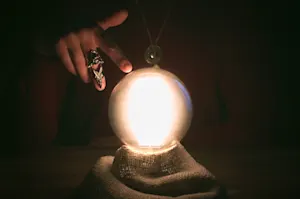What Makes This Word Tick
"Dissonance" is the kind of word that seems to create its own little bit of chaos in your mind. Often used in music and psychology, it stands for a lack of harmony or a clash, whether it's a jarring chord in a symphony or contrasting thoughts battling it out in your brain. It's one of those words that easily paints a picture of discord and tension.
If Dissonance Were a Person…
Imagine a person walking down the street wearing mismatched socks and humming two different tunes at once. This person would be a bit out of step with the world around them—perhaps juggling too many thoughts or opinions. A conversation with them might be lively but leave you with just as many questions as answers.
How This Word Has Changed Over Time
"Dissonance" has historically been associated with music, referring to sounds that clash. Over time, its application has broadened to include psychological and emotional realms. Now, it can describe any situation where there's a lack of agreement or harmony, from musical notes to philosophical debates and even political views.
Old Sayings and Proverbs That Use Dissonance
While there's not an old proverb that directly uses "dissonance," the idea is often captured in sayings like "not seeing eye to eye" or "not on the same wavelength," reflecting the concept of differing opinions or clashing ideas—essentially, social dissonance.
Surprising Facts About Dissonance
Did you know that some genres of modern music embrace dissonance as a defining feature? Jazz, for example, often uses dissonant chords to create tension and interest. Also, in psychology, cognitive dissonance describes the mental discomfort experienced when one holds two contradictory beliefs or values.
Out and About With This Word
Next time you hear a piece of modern classical music or a thought-provoking debate, think about the role dissonance plays. It's at home in art galleries where abstract works can conflict with the viewer's perception of reality, or in scientific discussions where new ideas challenge old paradigms.
Pop Culture Moments Where Dissonance Was Used
Dissonance adds drama in many forms of media, from the intense, clashing soundtracks of thrillers and horror films to the conflicting themes in TV shows where characters battle internal beliefs against their actions—think of those tense soap opera confrontations!
The Word in Literature
In literature, dissonance often finds a place in poetry and prose where conflicting themes are explored. Authors might use it to describe emotional turmoil or cultural conflict, adding layers of complexity to the narrative. It keeps readers intrigued, wondering which side will prevail or whether harmony is possible.
Moments in History with Dissonance
The dissonance felt in the 1960s during the civil rights movement in the U.S. perfectly encapsulates the term. It was a period marked by clashing views on racial equality. The tensions between different ideological groups created an era ripe with powerful, albeit uncomfortable, changes.
This Word Around the World
Across the globe, dissonance translates into various cultural contexts. In Japanese, the concept is akin to "harmony" (和, wa) but with a "not" prefix, suggesting discordance. Every culture has its own way of dealing with dissonance, whether through art, music, or dialogue.
Where Does It Come From?
The word "dissonance" originates from the Latin "dissonantia," meaning "discord," which perfectly captures its essence. It made its way through Old French before settling into the English language, retaining its roots in creating imagery of unresolved tension.
How People Misuse This Word
Some might mistakenly use "dissonance" when they merely mean disagreement. Dissonance implies a deeper level of conflict, often emotional or psychological, rather than a straightforward difference of opinion.
Words It’s Often Confused With
Discord: Also means conflict or disagreement but lacks the psychological or musical implications of dissonance.
Divergence: Refers to branching apart rather than clashing or contrasting elements.
Discrepancy: Indicates a lack of compatibility or similarity but doesn’t capture the full tension of dissonance.
Additional Synonyms and Antonyms
Synonyms include discordance, conflict, and incongruity. Antonyms would be harmony, accord, and agreement, painting a picture of peace and symmetry.
Want to Try It Out in a Sentence?
"Jane felt a sense of dissonance when confronted with her company's values clashing with her personal beliefs, a mental tug-of-war she hadn't anticipated."
















